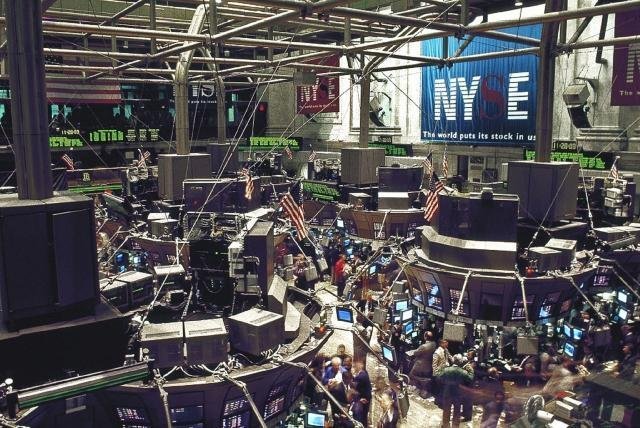In recent years, the world’s largest tech companies—Apple, Amazon, Google, Facebook (Meta), and Microsoft—have found themselves under increasing antitrust scrutiny from regulators around the globe. These companies, often referred to as “Big Tech,” wield enormous influence over the global economy, affecting everything from social media and e-commerce to cloud computing and digital advertising. With their market power expanding at an unprecedented rate, governments are beginning to question whether these companies have become too large and whether their dominance stifles competition, innovation, and consumer choice.
Antitrust investigations are now a defining issue for the tech sector, and the outcomes could reshape the industry in profound ways. In this post, we’ll explore the ongoing antitrust scrutiny facing Big Tech, the potential impact on the tech sector, and the broader implications for consumers and global markets.
1. The Growing Concerns Over Market Power
The primary concern surrounding Big Tech is their monopolistic behavior—whether their market dominance gives them the power to unfairly suppress competition and exploit consumers. These companies dominate their respective industries to such an extent that they can control how products are marketed, how data is used, and, in some cases, how consumers and businesses interact.
Apple: Antitrust scrutiny has focused on Apple’s App Store and its control over the iOS ecosystem. The company takes a cut of up to 30% from developers who distribute apps through its store, leading to complaints from companies like Epic Games (creator of Fortnite) that Apple’s App Store policies are anti-competitive. Epic filed an antitrust lawsuit, arguing that Apple was leveraging its market power to enforce restrictive rules and unfair fees.
Amazon: Amazon’s dominance in e-commerce has led to scrutiny of its marketplace practices. Amazon operates as both a retailer and a platform where third-party sellers can list products. Critics argue that Amazon uses its control over the platform to unfairly prioritize its own products over those of third-party sellers, benefiting from data it collects on sales and consumer preferences. Additionally, Amazon’s pricing practices and its alleged anti-competitive treatment of smaller competitors have been under investigation.
Google: Google is at the center of multiple antitrust investigations. Its search engine, advertising, and digital advertising tools are the primary targets of scrutiny. Google dominates online search, capturing over 90% of global market share, and its advertising network (which includes search ads, display ads, and YouTube ads) brings in billions of dollars annually. Regulators have raised concerns that Google uses its market power to suppress competition and engage in anti-competitive practices, such as favoring its own services in search results or restricting access to essential services for rivals.
Facebook (Meta): Facebook’s dominance in social media and digital advertising has been a subject of antitrust investigation, especially following its acquisitions of Instagram and WhatsApp. Critics argue that these acquisitions were designed to eliminate potential competitors and further entrench Facebook’s dominance in the social media landscape. Facebook’s handling of user data, the spread of misinformation, and its power over online discourse have also been central to antitrust debates.
Microsoft: Microsoft has largely escaped the intense scrutiny faced by other tech giants in recent years, but the company still faces antitrust issues—particularly in relation to its cloud computing business. Microsoft’s Azure competes with Amazon Web Services (AWS) and Google Cloud, and some critics argue that Microsoft may be leveraging its existing customer base in enterprise software (like Windows and Office) to gain an unfair advantage in the cloud market.
2. The Global Antitrust Landscape
Antitrust investigations into Big Tech are not limited to the U.S. regulatory agencies. Governments worldwide are becoming increasingly concerned about the market dominance of these tech giants, resulting in a patchwork of investigations and legal battles.
United States
In the U.S., both federal and state antitrust agencies have ramped up investigations into Big Tech in recent years. In 2020, the Federal Trade Commission (FTC) and Department of Justice (DOJ) launched a series of high-profile investigations into Google, Facebook, and Amazon. Notably, the DOJ’s case against Google accused the company of illegally maintaining its search and search advertising monopolies through exclusionary practices. Facebook is facing lawsuits from the FTC and state attorneys general over its acquisitions of Instagram and WhatsApp, as well as allegations that it has used anti-competitive practices to stifle rivals.
In 2021, a bipartisan group of U.S. lawmakers introduced several bills aimed at curbing Big Tech’s power, including proposals to limit their ability to self-preference in search results, prevent anti-competitive acquisitions, and introduce more transparency in their data handling practices.
European Union
The European Union has been at the forefront of antitrust action against Big Tech. The European Commission has imposed several large fines on companies like Google for anti-competitive practices. In 2018, Google was fined €4.34 billion for abusing its dominance in the mobile operating system market by requiring device manufacturers to pre-install Google’s search engine and apps on Android devices.
In addition to enforcement, the EU is moving forward with ambitious legislation like the Digital Markets Act (DMA) and Digital Services Act (DSA). The DMA aims to regulate gatekeeper platforms, or large platforms that control access to markets, and requires companies like Google, Facebook, and Amazon to adhere to stricter rules to ensure fair competition. The DSA, meanwhile, focuses on enhancing the accountability and transparency of digital platforms, particularly in areas related to harmful content and user data protection.
China
China, a major player in the global tech landscape, has also taken action against its own tech giants. The Chinese government has launched investigations into companies like Alibaba and Tencent for anti-competitive practices and monopolistic behavior. In 2021, Alibaba was fined $2.8 billion for violating anti-monopoly laws, and regulators have targeted practices like forced exclusivity agreements and unfair pricing schemes.
China’s approach to antitrust is largely driven by its desire to maintain control over its rapidly growing tech sector, but it also signals the growing importance of international antitrust regulation and the challenges of governing tech giants in a globalized economy.
3. Potential Impact on the Tech Sector
The growing antitrust scrutiny facing Big Tech is likely to have several long-term effects on the tech sector, with both positive and negative implications for businesses, consumers, and the global economy.
1. Breaking Up Big Tech
One of the potential outcomes of antitrust enforcement is the breakup of Big Tech companies. While this would be a highly controversial and difficult process, it is not outside the realm of possibility. The breakup of a company like Facebook could mean the separation of Instagram, WhatsApp, and Oculus into independent entities, which could lead to more competition in social media and digital messaging platforms. Similarly, Amazon could face regulatory pressure to separate its retail and marketplace businesses.
Although breaking up tech giants could foster more competition and prevent monopolistic behavior, it could also lead to operational inefficiencies and fragmentation in services, which could negatively impact consumers.
2. Increased Regulation and Compliance Costs
As regulators impose stricter rules on data privacy, market access, and transparency, Big Tech companies will face higher compliance costs. These costs could include changes to business practices, updates to privacy policies, and increased legal expenses. Companies may be required to disclose more information about their algorithms, pricing models, and data collection practices.
Smaller tech companies, on the other hand, may face challenges in meeting new regulatory requirements, which could stifle innovation or prevent them from entering the market altogether.
3. Innovation and New Market Opportunities
While regulatory pressure may stifle some of the more aggressive practices of tech giants, it could also create new opportunities for innovation. As Big Tech is forced to open up their ecosystems, smaller players may have more room to innovate, develop new services, and challenge established players. For instance, stricter rules around app stores could open up the market for alternative platforms that offer fairer fees and more flexibility for developers.
Additionally, as regulators push for more transparency, companies will need to find new ways to foster user trust, which could lead to the development of more consumer-friendly features and business models.
4. Consumer Impact: Both Positive and Negative
Consumers could see a mix of positive and negative outcomes from the heightened scrutiny of Big Tech. On the positive side, increased competition could lead to better services, lower prices, and more options for consumers. Stricter regulations around data privacy could also result in greater control over personal information.
On the downside, regulatory action could lead to more fragmented services, higher costs, and potentially less innovation in the short term. Companies may pass on the costs of compliance to consumers in the form of higher fees or reduced services.
4. The Road Ahead: What Does the Future Hold?
As antitrust investigations continue and regulatory frameworks evolve, the future of Big Tech and the broader tech sector remains uncertain. Will Big Tech companies be broken up, or will they adapt to a more regulated environment? How will smaller competitors navigate the shifting landscape?
The outcome will depend on the balance that regulators strike between promoting competition, fostering innovation, and protecting consumers. It is clear, however, that antitrust scrutiny will remain a central issue in the tech sector for the foreseeable future, and the decisions made in the coming years will have lasting consequences for the industry, its players, and the millions of people who rely on their services.
In the end, the ultimate goal is to create a digital economy that is both innovative and fair—where market power does not stifle competition, and where consumers have access to the best products and services in a transparent and equitable environment.




